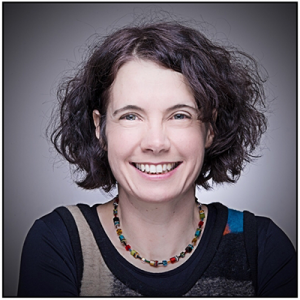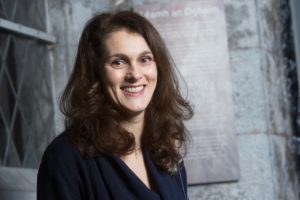Principal Investigators

Professor Geraldine Boylan
Professor of Neonatal Physiology
Director, INFANT Centre
University College Cork
Ireland
Geraldine is the Director of INFANT, Professor of Neonatal Physiology at University College Cork. Prof. Boylan has a career-long track record in clinical neurophysiology. Since 1996, she has worked exclusively in the field of neonatal neurophysiology. Her PhD thesis from Kings College London focused on EEG and cerebral blood flow velocity during neonatal seizures. She is a Science Foundation Ireland and Wellcome Trust funded Principal Investigator.
As an INFANT PI, Geraldine leads the thematic research areas related to the neonatal brain. Geraldine’s group comprises of a multidisciplinary research team that have established an international reputation in the area of neurological monitoring in the neonatal intensive care unit, particularly in seizure detection and early diagnosis of brain injury. Researchers in Geraldine’s group are developing automated algorithms for monitoring brain activity and remote monitoring tools for physiological data acquisition in the neonatal intensive care unit. One such innovation, an automated seizure detection algorithm for newborn babies, is the focus of a large multicentre trial ANSeR funded by a Strategic Translational Award from the Wellcome Trust and led by INFANT. Geraldine is co-coordinator of the FP7 funded NEMO study, Europe’s first multicentred dose finding and safety study of Bumetanide for the treatment of seizures in newborn babies.

Dr Ronit Pressler
Consultant in Clinical Neurophysiology
Great Ormond Street Hospital
London, UK
Ronit Pressler is Consultant in Clinical Neurophysiology and clinical lead of the Telemetry Unit at Great Ormond Street Hospital, London and Honorary Senior Lecturer at the UCL-Institute of Child Health. She qualified from Berlin University in 1992 and trained in paediatrics in Berlin, Germany and clinical neurophysiology at the National Hospital for Neurology and Neurosurgery, London, obtaining her MD in 1997 and her PhD in 2006.
Her research interests include neonatal seizures, particularly their diagnosis and treatment, the effect of epilepsy on cognition and pre-surgical evaluation in children with complex epilepsy.
Currently she is the coordinator for a European funded program developing antiepileptic drugs for the treatment of neonatal seizures (NEMO: Treatment of NEonatal seizures with Medication Off-patent).
Dr Pressler is also chair of the ILAE taskforce on neonatal seizures (part of ILAE Commission on Classification & Terminology).

Dr Deirdre Murray
INFANT Principal Investigator
Consultant Paediatrician, Senior Lecturer
University College Cork
Deirdre Murray is a Consultant Paediatrician and Senior Lecturer in the Department of Paediatrics and Child Health, University College, Cork. Deirdre is the Principal Investigator of the Cork BASELINE birth cohort, one of the largest and most detailed mother-child cohorts in Europe and the first and currently only longitudinal birth cohort in Ireland.
Deirdre qualified from University College Cork in 1995, and completed subspecialist paediatric training in Paediatric Intensive Care Medicine in Bristol Royal Hospital for Sick Children, and as a Paediatric Intensive care Fellow in the Royal Children’s Hospital, Melbourne from 2003-2004. She completed her PhD thesis on neuro-developmental outcome in hypoxic-ischaemic encephalopathy in 2008. In 2012 she was awarded a prestigious Health Research Board Clinician Scientist Award for BiHiVE an ongoing project focusing on the discovery and validation of biomarkers in neonatal brain injury.
Deirdre is the Principal Investigator of the Cork BASELINE birth cohort. BASELINE is one of the largest and most detailed mother-child cohorts in Europe and is also the first and currently only longitudinal birth cohort in Ireland. It contains data and biological samples from over 2000 Irish children. BASELINE is currently profiling the participating children at the age of 5. This study is a unique resource for collaborative research in the fields of allergy, obesity and genetic programming.
For the last 5 years, Dr Murray’s research has focused on early brain injury, and the development of new ways to predict and assess neurocognitive outcome in children.

Prof Eugene Dempsey
INFANT Principal Investigator
Consultant Neonatologist
Cork University Maternity Hospital
Cork, Ireland
Professor Dempsey is a Science Foundation Ireland Principal Investigator within INFANT. He is the lead PI for a number of on going SFI funded studies including Neoview which is a research project aimed at improving patient care and family well-being in the NICU and involves the use of webcams at the cot side, Neuroprobe which is a study addressing the relationship between blood pressure and cerebral activity in preterm infants.
Professor Dempsey has significant experience in conducting newborn clinical trials. His principle area of interest is cardiovascular support in the preterm infant. He is chief investigator for the EU FP7 funded multicentre, HiP trial (management of hypotension in the extremely preterm infant). He was local Principal Investigator for a number of multinational clinical trials including the NIPPV trial and the SafeBoosC-II trial. He is currently local Principal Investigator for AEROSURF®, a Phase 2 clinical trial of nebulised surfactant in very preterm infants, the MINT 1 clinical trial which is investigating the use of Milrinone in neonates with persistent pulmonary hypertension and the CUPID trial which is a pilot trial comparing maternal and neonatal outcomes following either immediate or delayed cord clamping with ventilation initiated at the bedside and umbilical cord milking. Other areas of interest include ethical issues pertaining to the newborn infant, manual ventilation, newborn resuscitation training, simulation based procedural healthcare, enhanced newborn stabilization, cerebral oxygenation and the role of NIRS in delivery suite management. He has acted as an international reviewer for a number of funding agencies including the NIHR and the European Commission.
